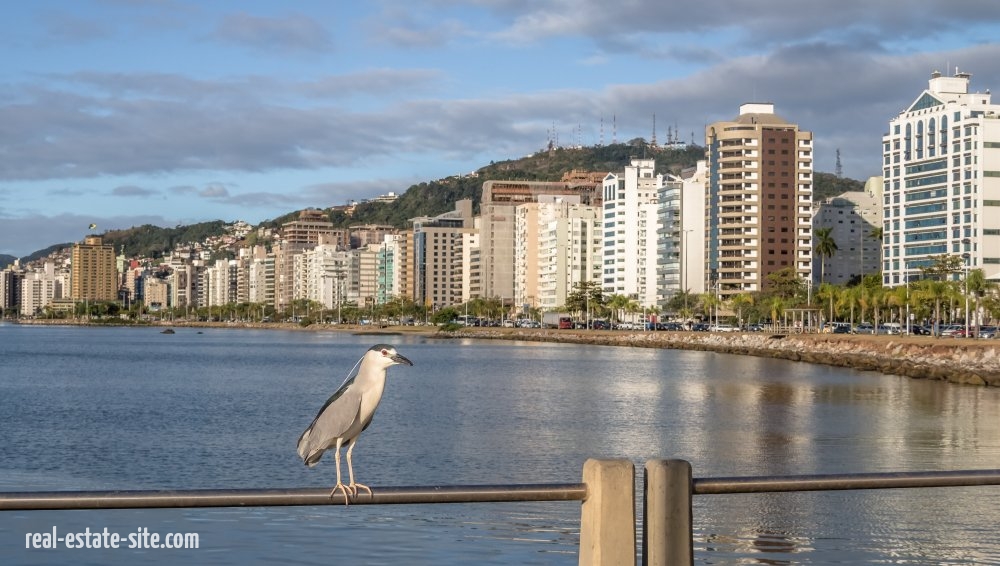Florianopolis, located in southern Brazil, is renowned for its stunning beaches, vibrant culture, and thriving tourism industry. The city has become an attractive destination for resort real estate investment. This article aims to analyze the profitability of resort real estate in Florianopolis by considering key factors such as market trends, rental potential, location, and economic indicators.
- Understanding the Florianopolis Real Estate Market: To assess the profitability of resort real estate in Florianopolis, it is essential to understand the local market dynamics:
a. Market Trends: Research the current trends in the Florianopolis real estate market. Analyze property prices, sales volumes, and market demand to gauge the market’s stability and growth potential.
b. Tourism Sector: Consider the tourism industry’s strength in Florianopolis, including the number of visitors, average length of stay, and occupancy rates of resorts and hotels. A strong tourism sector indicates potential demand for resort real estate.
c. Economic Indicators: Assess the city’s economic indicators, such as GDP growth, employment rates, and investment climate. A stable and growing economy can positively impact the profitability of resort real estate.
- Location Analysis: Location plays a crucial role in the profitability of resort real estate. Evaluate the following factors:
a. Beachfront Access: Properties located near the beach or with direct beach access tend to attract higher rental rates and occupancy levels. Beachfront resorts offer a unique selling point that can contribute to profitability.
b. Proximity to Amenities: Consider the proximity of resorts to essential amenities such as restaurants, shops, entertainment venues, and transportation hubs. Convenient access to these facilities can enhance the attractiveness of the property to potential renters or buyers.
c. Infrastructure Development: Research ongoing and planned infrastructure developments in the vicinity of the resort, such as transportation networks, roads, and public facilities. These developments can increase the property’s value over time and attract more tourists.
d. Environmental Considerations: Assess the environmental factors that can impact the resort, such as erosion risks, natural attractions, and environmental regulations. Environmental sustainability and preservation efforts can positively influence the perception and demand for the resort.
- Rental Potential and Occupancy Rates: Evaluate the rental potential and occupancy rates of resort real estate in Florianopolis:
a. Rental Demand: Analyze the demand for short-term rentals, particularly during peak tourist seasons. Research historical rental rates and occupancy levels in the area to estimate potential rental income.
b. Marketing Channels: Consider the marketing channels available to promote and attract renters. Evaluate online platforms, travel agencies, and local partnerships to maximize the property’s exposure to potential guests.
c. Property Management: Assess the availability and quality of property management services in Florianopolis. A reliable property management company can handle bookings, maintenance, and guest services, enhancing the property’s profitability.
- Financial Considerations: Evaluate the financial aspects associated with resort real estate in Florianopolis:
a. Initial Investment: Consider the initial investment required to purchase resort real estate, including property acquisition costs, taxes, and legal fees. Determine if the investment aligns with your budget and return expectations.
b. Financing Options: Explore financing options available for resort real estate purchases, such as mortgages or loans. Evaluate interest rates, repayment terms, and eligibility criteria to determine the feasibility of financing the investment.
c. Operating Costs: Estimate the ongoing operating costs associated with maintaining and managing the resort property. These costs may include property taxes, insurance, maintenance fees, utilities, and property management fees.
d. Return on Investment (ROI): Calculate the potential return on investment by considering rental income, capital appreciation, and potential resale value. Conduct a financial analysis to assess the profitability and sustainability of the investment over the long term.
- Legal and Regulatory Considerations: Understand the legal and regulatory framework surrounding resort real estate in Florianopolis:
a. Ownership Regulations: Familiarize yourself with the regulations regarding property ownership in Brazil, including restrictions on foreign ownership and any specific requirements for resort properties.
b. Permits and Licenses: Ensure compliance with local regulations and obtain any necessary permits or licenses for operating a resort property. This includes meeting safety, health, and environmental standards.
c. Taxation: Understand the tax obligations associated with owning and operating resort real estate in Florianopolis. Consult with a local tax advisor to ensure compliance with local tax laws and to optimize your tax position.
Evaluating the profitability of resort real estate in Florianopolis requires a comprehensive analysis of the local market, location factors, rental potential, financial considerations, and legal aspects. By carefully considering these factors and conducting thorough research, you can make an informed decision regarding the profitability and viability of investing in resort real estate in Florianopolis.

